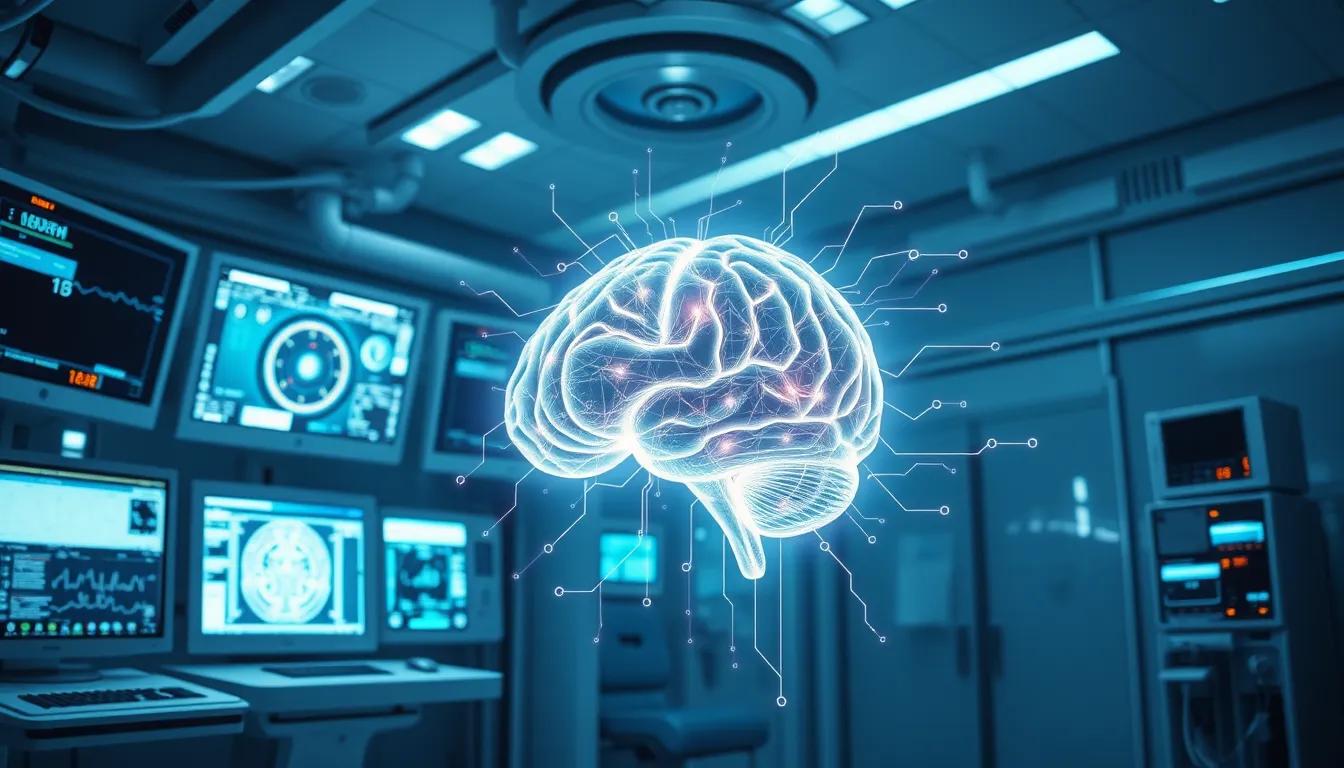Now Reading: Powerful AI in Healthcare Diagnostics: Boosting Patient Care
-
01
Powerful AI in Healthcare Diagnostics: Boosting Patient Care
Powerful AI in Healthcare Diagnostics: Boosting Patient Care

Powerful AI in Healthcare Diagnostics: Boosting Patient Care
The rapid integration of Artificial Intelligence (AI) into healthcare is transforming the way professionals diagnose and treat diseases. AI in healthcare diagnostics has become a game changer, driving improvements in preventive care, diagnostic precision, and treatment planning. In this article, we explore how AI is reshaping medical diagnostics and the overall patient care landscape.
Revolutions in Medical Imaging and Diagnostics
AI in healthcare diagnostics is at the forefront of transforming traditional methods. Medical imaging technologies, such as MRIs and CT scans, are now being paired with AI algorithms that enhance image analysis, quickly identifying subtle anomalies often invisible to the human eye. Machine learning models continuously evolve, leading to increased accuracy in early disease detection.
Key Benefits:
- Enhanced image clarity and detection of minute irregularities
- Faster processing of complex data sets for prompt diagnosis
- Reduced diagnostic errors, leading to improved patient outcomes
How AI Improves Diagnostic Accuracy
AI has rapidly become an invaluable tool in healthcare. By integrating complex algorithms with high-quality imaging data, healthcare providers are better equipped to predict and diagnose conditions earlier. Incorporating systems such as computer-aided diagnostic tools helps in analyzing patterns and flagging potential issues in real time. For example, radiologists now frequently rely on these systems to offer second opinions and validate their interpretations, ensuring that each diagnosis is both precise and timely.
The Role of AI in Disease Prediction and Preventive Medicine
Beyond diagnostics, AI in healthcare diagnostics extends its benefits to disease prediction and preventive strategies. Predictive analytics allows clinicians to forecast disease progressions based on patient history, genetic information, and lifestyle factors. This forward-thinking approach is paving the way to personalized treatment plans that can significantly reduce hospital readmission rates. By using historical data and advanced pattern recognition, AI supports doctors in making connections between early symptoms and their potential long-term impacts.
Key aspects include:
- Early risk detection using deep learning
- Tailored preventive interventions
- Monitoring and managing chronic conditions effectively
Overcoming Challenges and Ethical Considerations
Despite the evident benefits of AI in healthcare diagnostics, several challenges remain. With the rapid evolution of technology, it is crucial for medical professionals to stay updated on the latest advancements and effectively integrate them into daily practice. Training and continuous learning are essential components that empower healthcare teams to utilize AI tools safely and successfully.
Ethical considerations and calibrating AI-driven decisions are critical. Ensuring the privacy and security of patient data is paramount, with healthcare organizations increasingly adopting rigorous cybersecurity measures. Additionally, integrating robust ethical frameworks helps in preventing bias in AI algorithms, thereby promoting equitable care for all patients.
Integrating AI with Traditional Medical Practices
As technology evolves, merging AI with conventional medical methods becomes vital to avoid disruption. Collaborative efforts between seasoned healthcare professionals and emerging AI technologies are the key to innovation. Hospitals are adopting hybrid models that combine manual oversight with automated analysis, ultimately leading to a more holistic approach to patient care.
Internal and External Resources
For further reading on relevant technological breakthroughs, you may visit the official website of OpenAI. Additionally, to understand the broader context of digital transformation in medicine, explore resources available at Microsoft’s official site.
Future Prospects of AI in Healthcare Diagnostics
Looking forward, the future of AI in healthcare diagnostics seems promising. Continuous investments in AI research and development will drive new innovations at a faster pace, providing more powerful tools for early detection and better patient outcomes. Healthcare institutions are partnering with tech giants to develop next-generation systems that integrate patient data securely and effectively.
The next decade will likely witness AI algorithms becoming even more sophisticated, with enhanced self-learning capabilities that reduce dependency on human intervention. With an emphasis on early diagnosis, personalized treatment, and preventive medicine, AI is set to redefine healthcare infrastructure globally.
Conclusion
In conclusion, the adoption of AI in healthcare diagnostics is revolutionizing traditional medical practices by providing faster, more accurate, and reliable diagnostic tools. The integration of advanced imaging, predictive analytics, and machine learning is leading to significant improvements in patient care and outcomes. As we overcome the challenges related to data privacy, ethical considerations, and continuous learning, the future of healthcare appears both promising and innovative. Embracing these technological advancements today will pave the way for a healthier, more resilient tomorrow.
By leveraging the potential of AI in healthcare diagnostics, medical professionals can look forward to a future where every diagnostic process is optimized for accuracy, efficiency, and patient satisfaction. The transition may be complex, but the benefits to global health and individual patient care are undeniable and far-reaching.

























